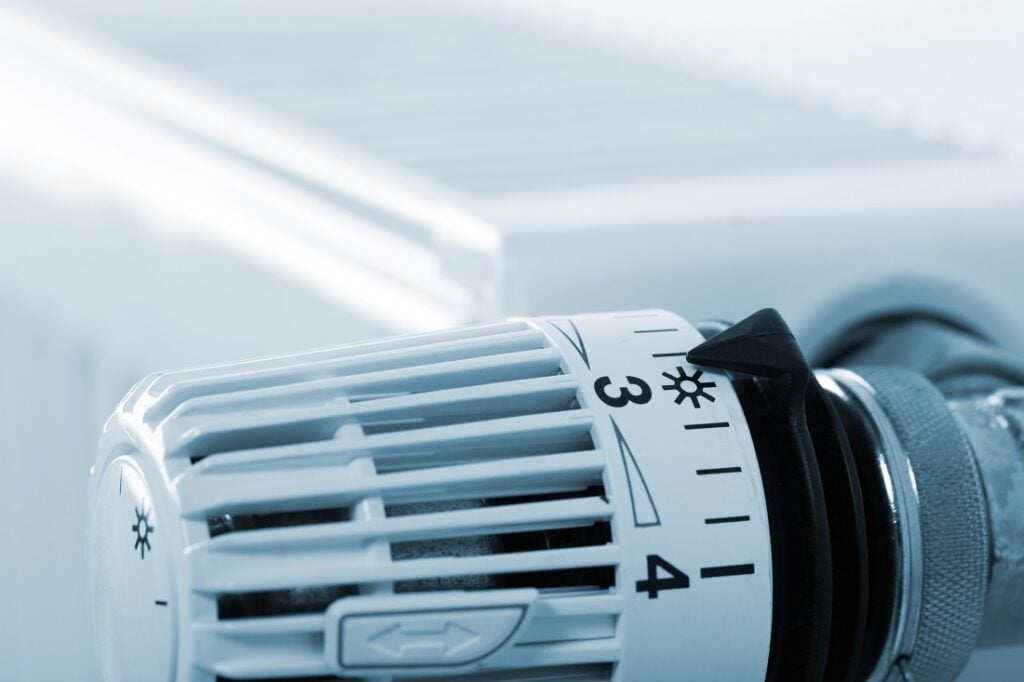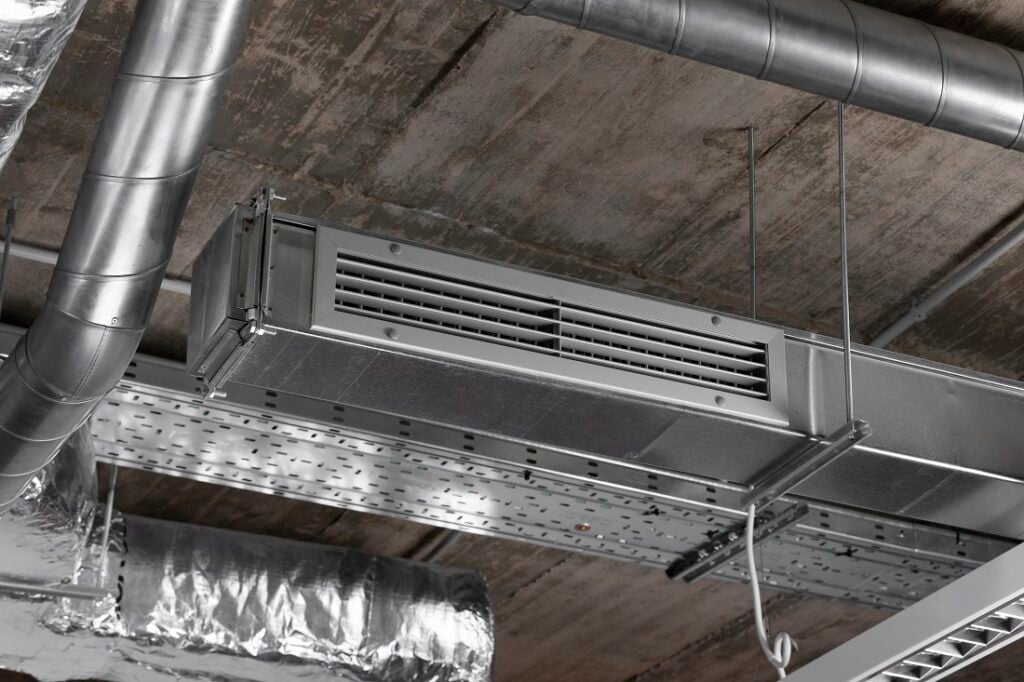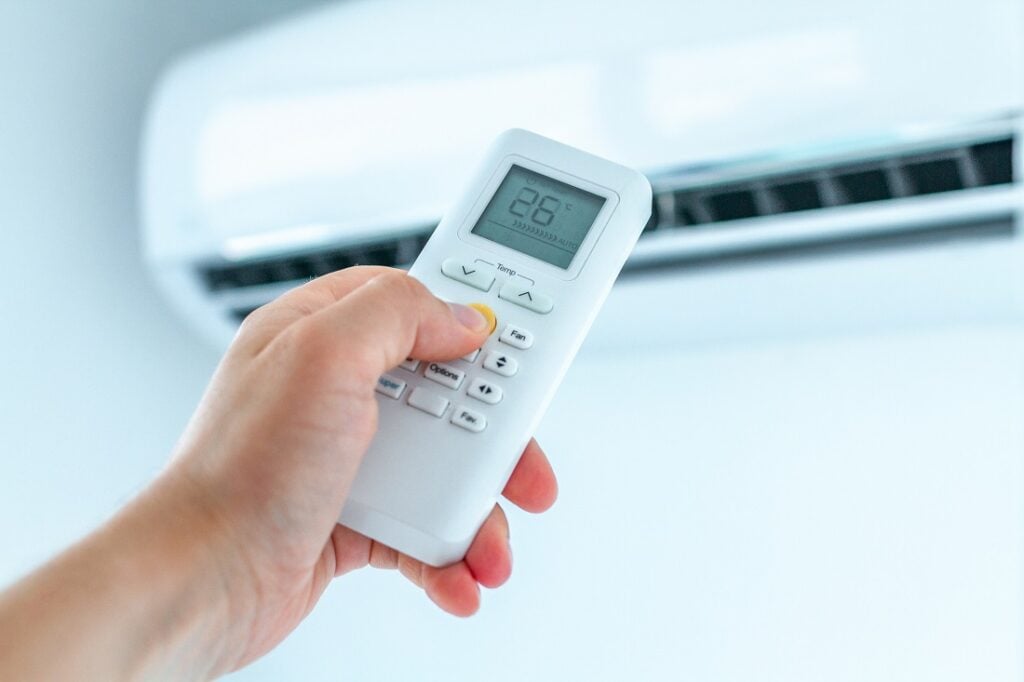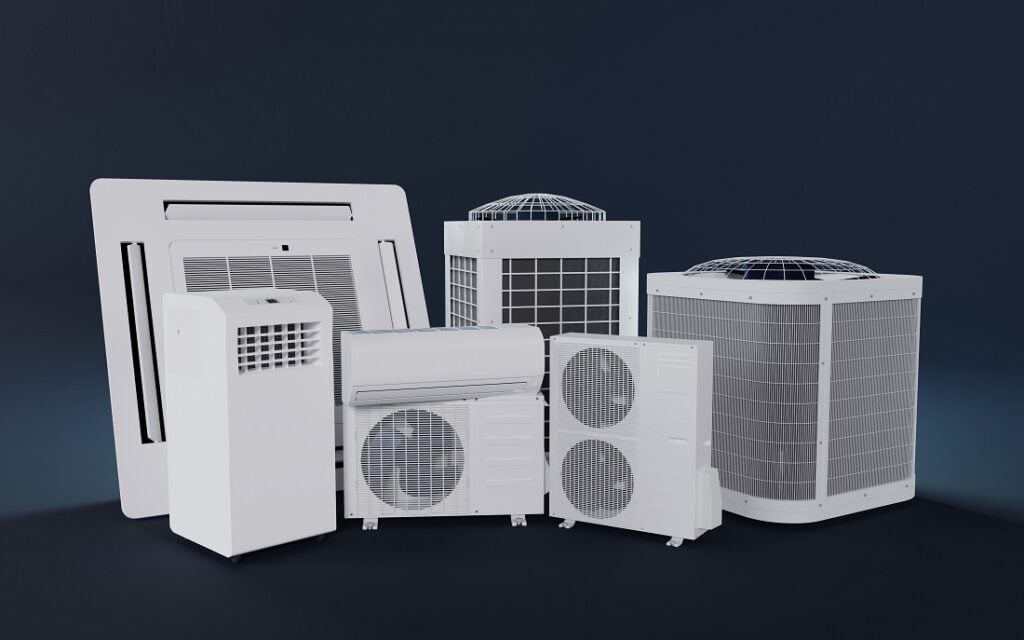HVAC Meaning: Unraveling the Secrets of Your Home’s Comfort System

Understanding the HVAC meaning is crucial for anyone who wants to maintain a comfortable and healthy living environment. HVAC, which stands for Heating, Ventilation, and Air Conditioning, is a system that controls the indoor climate and air quality of a building. This article will delve into the intricacies of HVAC, its components, and its significance in our lives.
Table of Contents
What is HVAC?
HVAC is an acronym that stands for Heating, Ventilation, and Air Conditioning. It is a system designed to control the environmental conditions within a building or a vehicle, primarily temperature and humidity, to ensure comfort and air quality.
The HVAC system is a complex network of machinery and ductwork that includes several components. These components work together to provide thermal comfort and acceptable indoor air quality. Here’s a more detailed look at each component.
Components of HVAC
Heating

The heating component of an HVAC system is responsible for raising the temperature of a building during cold weather. This is typically achieved through a furnace or a heat pump. Furnaces generate heat by burning fuel (like natural gas, oil, or propane), while heat pumps use electricity to move heat from a cool space to a warm space.
Ventilation

Ventilation is the process of exchanging or replacing air in a space to control temperature or remove moisture, odors, smoke, dust, airborne bacteria, and carbon dioxide. Ventilation includes both the exchange of air to the outside as well as circulation of air within the building. It is one of the most important factors for maintaining acceptable indoor air quality in buildings.
Air Conditioning

The air conditioning component of an HVAC system is responsible for lowering the temperature during hot weather. An air conditioner works by removing heat from the interior of a building and releasing it outside. It also reduces humidity levels, making the air more comfortable.
Here’s a simple chart that breaks down the main components of an HVAC system and their functions:
| Component | Function | Examples |
|---|---|---|
| Heating | Raises indoor temperature during cold weather | Furnace, Heat Pump |
| Ventilation | Exchanges indoor air with outdoor air, removes pollutants and moisture | Mechanical Ventilation (Fans, Air Ducts), Natural Ventilation (Windows, Vents) |
| Air Conditioning | Lowers indoor temperature during hot weather, reduces humidity | Central Air Conditioner, Window Unit, Portable Unit |
How Does an HVAC System Work?
An HVAC system works by manipulating the properties of air to create a comfortable environment within a building. It does this through a cycle of processes that involve the three main components: heating, ventilation, and air conditioning. Here’s a step-by-step breakdown of how an HVAC system works:
- Air Return: The process begins with the air return, which sucks in air, dust, and other particles. This air travels through filters to remove dust and allergens before it enters the system.
- Heat Exchange: The clean air then passes over a heat exchanger. In the colder months, the air is warmed here. The heat exchanger is usually located in the furnace and is warmed by burning gas.
- Distribution: The heated or cooled air is then distributed throughout the building via a series of ducts. These ducts are spread out strategically in different parts of the building to ensure even distribution of air.
- Thermostat Regulation: The thermostat in the building regulates the temperature of the air being distributed. When the desired temperature is reached, the thermostat signals the HVAC system to pause until the temperature drops or rises to a certain level.
- Ventilation: Ventilation occurs throughout this process to replace stale indoor air with fresh outdoor air. This is important for maintaining good air quality and removing excess moisture, odors, and pollutants.
- Air Conditioning: During warmer months, the air conditioning component comes into play. The system uses a refrigerant, a substance that cools the air by absorbing heat and releasing it outside. The cooled air is then circulated throughout the building.
- Exhaust: Finally, the system exhausts the air back to the outside environment, completing the cycle.
Understanding how an HVAC system works can help you maintain it better and troubleshoot any issues that may arise. It’s a complex system, but its basic function is to keep your indoor environment comfortable and healthy.
Types of HVAC Systems

HVAC systems come in various types, each designed to suit specific needs based on factors such as building size, climate, and energy efficiency requirements. Here’s a look at some of the most common types of HVAC systems:
- Central HVAC Systems: These are the most common type of HVAC systems in larger buildings. They include a central air conditioner that circulates cool air through a system of supply and return ducts. The air becomes warmer as it circulates through the building, then flows back to the central air conditioner through return ducts.
- Ductless, Mini-Split Systems: These systems are ideal for cooling specific rooms or zones within a building. Each zone has its own thermostat, allowing for more precise temperature control. They are more energy-efficient as they avoid energy losses associated with ductwork.
- Window Units: These are standalone air conditioning units that are installed in windows. They are suitable for cooling single rooms.
- Portable Units: These are small, mobile air conditioning units that can be moved from room to room. They are ideal for situations where permanent installation is not possible.
- Hybrid Systems: These systems switch between a gas furnace and an electric heat pump for heating, depending on which is more efficient. They are energy-efficient and can reduce heating costs.
- Geothermal Heating and Cooling: These systems use the stable temperature of the earth to heat and cool buildings. They are highly energy-efficient and environmentally friendly but can be expensive to install.
Here’s a chart that summarizes the different types of HVAC systems, their characteristics, and their best use cases:
| Type of HVAC System | Characteristics | Best Use Case |
|---|---|---|
| Central HVAC Systems | Centralized control, ductwork required, cools entire building | Larger buildings |
| Ductless, Mini-Split Systems | No ductwork required, individual control for each zone | Buildings with specific cooling needs for different zones |
| Window Units | Installed in windows, cools single room | Single rooms, small apartments |
| Portable Units | Mobile, can be moved from room to room | Situations where permanent installation is not possible |
| Hybrid Systems | Switches between gas furnace and electric heat pump | Areas with fluctuating climate conditions |
| Geothermal Heating and Cooling | Uses earth’s temperature, highly energy-efficient | Environmentally conscious buildings, can afford higher upfront costs |
Understanding the different types of HVAC systems can help you choose the one that best fits your needs, whether you’re looking to cool a single room or an entire building.
Importance of HVAC Systems

HVAC systems play a crucial role in maintaining a comfortable and healthy environment in our homes and workplaces. Here are some of the key reasons why HVAC systems are so important:
- Temperature Control: The most obvious function of an HVAC system is to maintain a comfortable temperature in a building, regardless of the weather outside. During winter, the heating component of the system warms up the indoor air to keep the occupants warm. During summer, the air conditioning component cools the indoor air to keep the occupants cool.
- Humidity Control: Besides controlling temperature, HVAC systems also control the humidity level inside a building. This is important because high humidity can lead to mold growth and other moisture-related problems, while low humidity can cause dry skin and respiratory issues.
- Air Quality: HVAC systems improve the quality of indoor air by filtering out pollutants such as dust, allergens, and airborne bacteria. This is crucial for preventing respiratory diseases and allergies. The ventilation component of the system also ensures that stale indoor air is regularly replaced with fresh outdoor air.
- Energy Efficiency: Modern HVAC systems are designed to be energy efficient. They use less energy to heat or cool a building, which not only saves money on energy bills but also reduces the building’s carbon footprint.
- Comfort and Well-being: By maintaining a comfortable temperature, controlling humidity, and improving air quality, HVAC systems contribute to the overall comfort and well-being of the occupants. They make homes more livable and workplaces more conducive to productivity.
How HVAC Systems Can Improve Daily Life
| Aspect of Daily Life | Improvement with HVAC |
|---|---|
| Breathing | HVAC systems can filter out pollutants and allergens from the air, leading to cleaner air and easier breathing, especially for people with allergies or respiratory conditions. |
| Comfort | HVAC systems regulate temperature and humidity, making indoor environments more comfortable. This can lead to improved mood and productivity. |
| Sleep | By maintaining an optimal temperature and humidity level, HVAC systems can promote better sleep quality. |
| Health | By reducing the spread of airborne diseases and promoting better air quality, HVAC systems can contribute to overall health. |
| Brain Function | Some studies suggest that the comfort provided by HVAC systems can enhance cognitive function, although more research is needed in this area. |
Choosing the Right HVAC System
Choosing the right HVAC system is crucial for maintaining a comfortable and healthy environment in your home or workplace. Here are some factors to consider when choosing an HVAC system:
- Size of the Space: The size of the space you need to heat or cool is one of the most important factors to consider. A system that’s too small won’t be able to effectively control the temperature, while a system that’s too large will consume more energy than necessary. An HVAC professional can help you calculate the appropriate size for your system based on the size of your space.
- Climate: The climate in your area will also influence the type of HVAC system you need. If you live in a region with cold winters, you’ll need a system with a strong heating component. If you live in a region with hot summers, a powerful air conditioning component will be important.
- Energy Efficiency: Energy efficiency is another important factor to consider. More efficient systems may be more expensive upfront, but they can save you money in the long run through lower energy bills. Look for systems with a high Seasonal Energy Efficiency Ratio (SEER) and Heating Seasonal Performance Factor (HSPF).
- Cost: Cost includes both the upfront cost of the system and the ongoing costs of operation and maintenance. While higher-quality systems may cost more upfront, they can often lead to lower costs in the long run due to their higher efficiency and durability.
- Indoor Air Quality: If you or your family members have allergies or respiratory conditions, you may want to look for an HVAC system with advanced air purification features.
- Professional Advice: It’s always a good idea to seek professional advice when choosing an HVAC system. HVAC professionals can assess your specific needs and recommend the best system for your situation.
Remember, the right HVAC system for you will depend on your specific needs and circumstances. By considering these factors and seeking professional advice, you can find a system that provides comfort, improves air quality, and saves energy.
Maintaining Your HVAC System

Regular maintenance of your HVAC system is essential for its longevity and efficiency. This includes DIY maintenance tasks like changing filters and professional check-ups to ensure the system is working properly.
Future Trends in HVAC

The HVAC industry is continuously evolving, driven by technological advancements and a growing emphasis on energy efficiency and sustainability. Here are some future trends to watch out for in the HVAC industry:
- Smart HVAC Systems: With the rise of the Internet of Things (IoT), smart HVAC systems are becoming increasingly common in smart buildings. These systems can be controlled remotely through smartphones or other devices, allowing for more convenient and efficient temperature control. They can also learn from your habits and adjust settings automatically to save energy.
- Energy Efficiency: As energy costs rise and environmental concerns grow, there is a growing demand for more energy-efficient HVAC systems. This includes systems with higher SEER ratings, as well as alternative systems like geothermal heating and cooling.
- Sustainability: Along with energy efficiency, sustainability is a major trend in the HVAC industry. This includes the use of environmentally friendly refrigerants, as well as systems that use renewable energy sources like solar power.
- Integration with Home Automation Systems: As home automation becomes more common, HVAC systems are being integrated into these systems. This allows for more efficient and convenient control of the home environment, including temperature, humidity, and air quality.
- Personalized Comfort: Future HVAC systems will be able to provide more personalized comfort. This includes systems that can adjust settings for individual rooms or zones within a building, as well as systems that can adjust settings based on the preferences of individual occupants.
- AI and Predictive Maintenance: With the help of artificial intelligence (AI), future HVAC systems will be able to predict potential issues and schedule maintenance before a breakdown occurs. This can help to extend the lifespan of the system and prevent costly repairs.
These trends reflect the ongoing evolution of the HVAC industry, as it adapts to new technologies and changing consumer demands. By staying aware of these trends, you can make more informed decisions when choosing and maintaining your HVAC system.
Conclusion
Understanding the meaning of HVAC and its components is crucial for maintaining a comfortable and healthy living environment. With the right system and regular maintenance, you can enjoy the benefits of HVAC for years to come. As technology advances, we can look forward to even more efficient and environmentally friendly HVAC systems in the future.